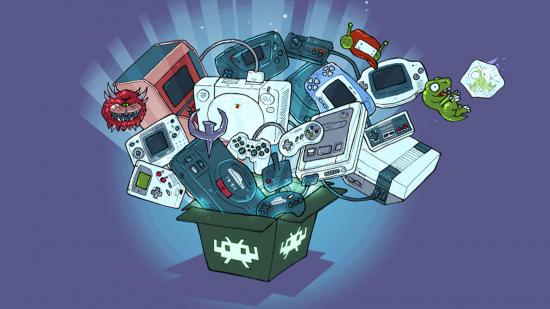Videogame emulation is great at two things: preserving gaming history, and allowing people to easily pirate old software. The industry’s relationship with emulation has been rocky as a result, but Xbox’s excellent first-party emulation efforts have offered everyone a bit of hope – until those efforts came to an end following the most recent Xbox backward compatibility update. Still, the head of Xbox has hope that the industry will come to a solution to preserve old games.
“My hope (and I think I have to present it that way as of now) is as an industry we’d work on legal emulation that allowed modern hardware to run any (within reason) older executable allowing someone to play any game,” Xbox boss Phil Spencer tells Axios.
Spencer’s stated hope comes just after Microsoft’s gaming division brought its own first-party emulation efforts to an end. “While we continue to stay focused on preserving and enhancing the art form of games,” as the announcement put it, “we have reached the limit of our ability to bring new games to the catalog from the past due to licensing, legal, and technical constraints.”
The details of those licensing and legal constraints in particular may never become clear, but the Xbox devs were clearing newly-added backward compatible games with their respective license-holders. Using emulators, whether official or made by fans, is perfectly legal, but distributing copyrighted software through unofficial channels absolutely is not. That makes even official emulation solutions tricky to implement.
The emulator Microsoft built for Xbox backward compatibility was fairly unique among official emulators, as it generally surpasses the performance of fan-made emulators for Xbox games. You’d generally hope a first-party would make it better than the fans, but as we’ve seen with recent debacles like Nintendo 64 games on Switch, that usually isn’t the case.
Still, emulation has proven a useful tool for publishers to keep old games in distribution – there are plenty of old games on GOG and Steam using DOSBox, for example. There have been steps in the right direction, but Xbox’s own licensing issues have shown how tough it can be to make this work legally.
As Spencer puts it, “I think in the end, if we said, ‘Hey, anybody should be able to buy any game, or own any game and continue to play,’ that seems like a great North Star for us as an industry.”
